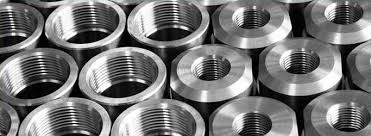Aqueous cleaners are made up of a combination of various substances that include surfactants, sequestering agents, and alkaline builders, among an amalgamation of other substances. Regarding custom solutions, as it pertains to ferrous metal cleaning, Aqueous PCB Cleaners can be customized in a way that permits rust inhibitors to be built into the cleaner so it can prevent flash rusting after washing. Aqueous PCB Cleaners have proven to be a very effective custom cleaning solution, so much so that its use among several industrial businesses, as well as in other types of industries, has risen. One important factor for the rise of Aqueous PCB Cleaners is recently, it has proven to be a better cleaning tool than most hydrocarbon cleaners. In addition to the fact that less waste is produced from Aqueous PCB Cleaners, of the waste produced, a reduced amount of hazardous waste is generated from the compiled waste, which results in less costly waste disposal needs for industrial businesses and other types of organizations.
Several other advantages exist to using Aqueous PCB Cleaners. A reduced number of particle and polar contaminants are generated from the utilization of Aqueous PCB Cleaners, and mechanical and thermal energy are the only sources of energy that are required at a higher input in order for the Aqueous PCB Cleaner to be effective. Even though there are other parts cleaning solvents available that might be able to clean as effectively as Aqueous PCB Cleaners, none of them boast the significantly reduced number of health, environmental, and other associated risks. Yet another critical advantage to using Aqueous PCB Cleaners over other kinds of cleaning agents is aqueous cleaners are not made of flammable chemical components, whereas other cleaning solvents are. While most other parts cleaning agents come with fire, explosive, and flammable hazards, Aqueous PCB Cleaners come without any of those serious risks. Therefore, if you couple the reduced number of associated risks when using Aqueous PCB Cleaners with the fact it has become generally accepted that aqueous cleaners remove oil, dirt, and grease from parts, metals, components, and raw materials as effectively as any other cleaning solvent, there is no reason not to make Aqueous PCB Cleaners your number one trusted parts washer and cleaner solution for your organization.
Ecolink professionals provide the necessary information that enables its customers to garner a full grasp concerning all the characteristics that make up Aqueous PCB Cleaners. Aqueous cleaners present an eco friendly, green alternative for industrial organizations and the use of parts cleaning solutions to rid parts, metals, components, and raw materials of dirt, oil, grease, grime, and other potentially harmful particles. If Aqueous PCB Cleaners sounds like an intriguing option for a parts washing and cleaning solution for your industrial business, then contact Ecolink, and they can help your implement this valuable parts washer cleaner into your parts washing and cleaning operation.















